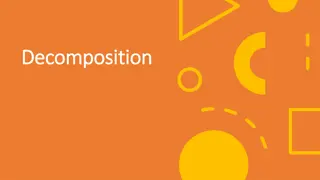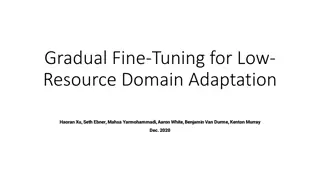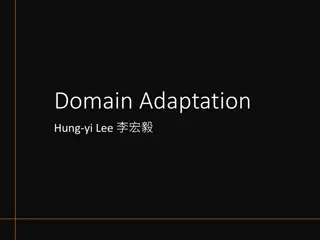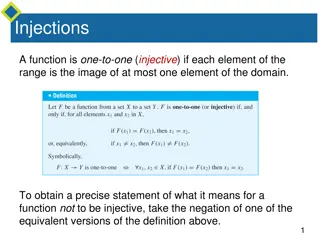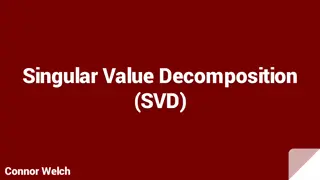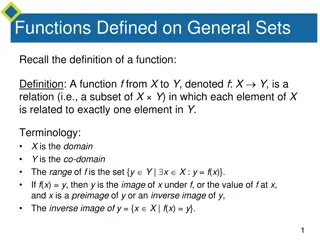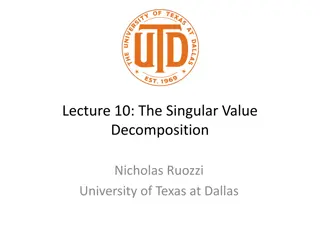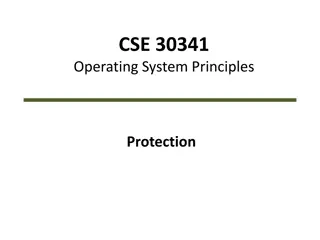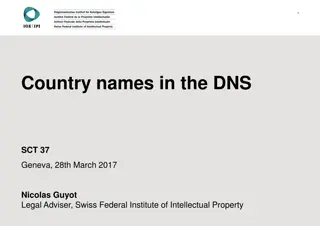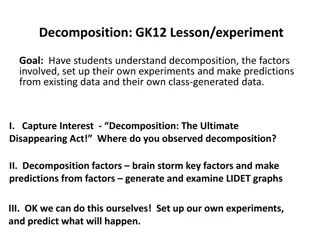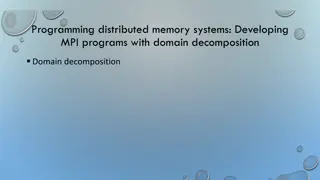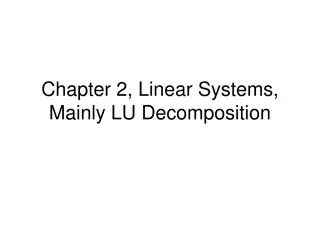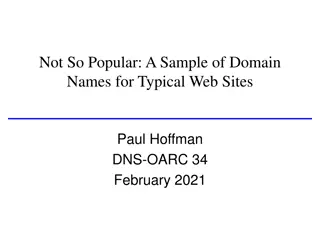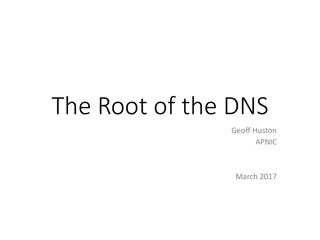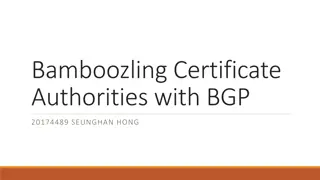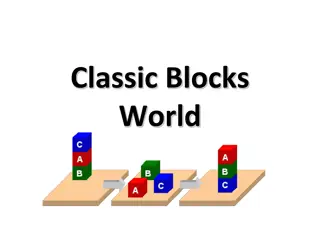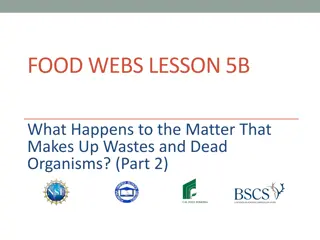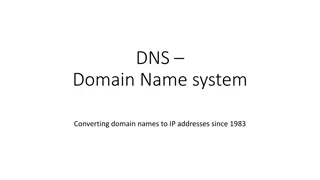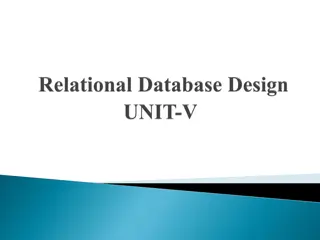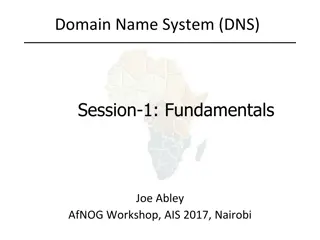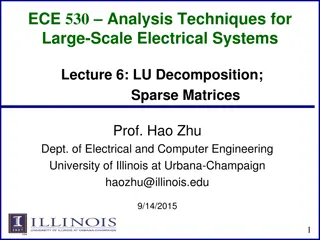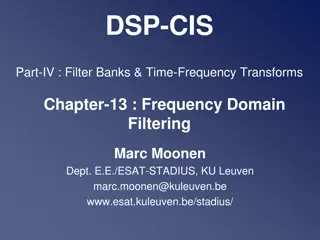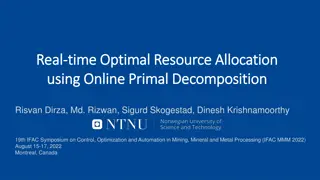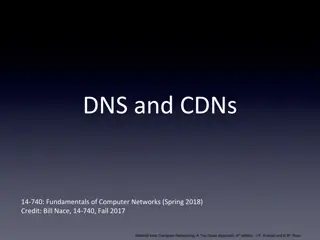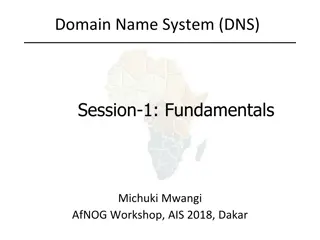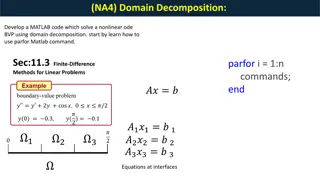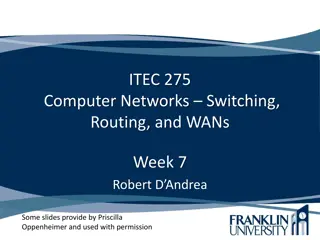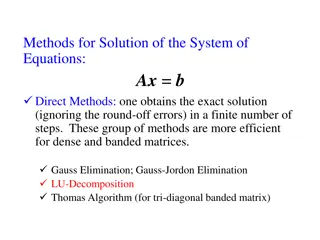The Power of Decomposition in Problem Solving
Learn about the concept of decomposition and its importance in problem-solving scenarios in both real-life and Computer Science. Discover how breaking down complex problems into manageable sub-problems can lead to efficient solutions. Explore how decomposition aligns with algorithmic thinking and en
2 views • 11 slides
Gradual Fine-Tuning for Low-Resource Domain Adaptation: Methods and Experiments
This study presents the effectiveness of gradual fine-tuning in low-resource domain adaptation, highlighting the benefits of gradually easing a model towards the target domain rather than abrupt shifts. Inspired by curriculum learning, the approach involves training the model on a mix of out-of-doma
0 views • 17 slides
Parallel Implementation of Multivariate Empirical Mode Decomposition on GPU
Empirical Mode Decomposition (EMD) is a signal processing technique used for separating different oscillation modes in a time series signal. This paper explores the parallel implementation of Multivariate Empirical Mode Decomposition (MEMD) on GPU, discussing numerical steps, implementation details,
2 views • 15 slides
Domain Adaptation in Machine Learning
Domain adaptation in machine learning involves transferring knowledge from one domain to another. It addresses the challenge of different data distributions in training and testing sets, leading to improved model performance. Techniques like domain adversarial training and transfer learning play a k
0 views • 16 slides
Injective and Surjective Functions
Injective functions map elements from the domain to the range uniquely, while surjective functions ensure every element in the co-domain has a corresponding element in the domain. The negation of injective means finding x1 and x2 in the domain with the same function value but not equal, whereas for
2 views • 26 slides
Singular Value Decomposition (SVD)
Singular Value Decomposition (SVD) is a powerful method for solving systems of linear equations or matrices that are singular or close to singular. When LU-decomposition or Gaussian elimination fail, SVD provides a stable matrix decomposition helpful in various applications. It is particularly usefu
0 views • 17 slides
Functions: Definitions and Arrow Diagrams
Recall the definition of a function, where each element in the domain is related to exactly one element in the co-domain. Arrow diagrams can visually represent functions from finite sets X to Y. In this example, a function is defined from X = {a, b, c} to Y = {1, 2, 3, 4} using arrow diagrams, showc
10 views • 28 slides
Singular Value Decomposition
The Singular Value Decomposition (SVD) is a powerful factorization method for matrices, extending the concept of eigenvectors and eigenvalues to non-symmetric matrices. This decomposition allows any matrix to be expressed as the product of three matrices: two orthogonal matrices and a diagonal matri
0 views • 35 slides
Operating System Protection Principles
Explore the goals, principles, and implementation of protection in computer systems, including access matrix, domain structure, and capability-based systems. Learn how protection domains and access control are used to specify resource access, and delve into the concept of least privilege and dynamic
4 views • 21 slides
Bi-Decomposition of Large Boolean Functions Using Blocking Edge Graphs
Bi-decomposition is a vital technique in logic synthesis for restructuring Boolean networks. This paper discusses the methodology of breaking down large Boolean functions using Blocking Edge Graphs (BEG) to simplify physical design and reduce complexity. The process involves constructing BEG, perfor
1 views • 29 slides
Country Names in the Domain Name System (DNS)
The Domain Name System (DNS) plays a crucial role in attributing top-level and second-level domains to country names. This system is global and managed by ICANN, not national offices, allowing for unique attribution to one person. Examples of country names registered as second-level domains are prov
2 views • 7 slides
Hierarchical Attention Transfer Network for Cross-domain Sentiment Classification
A study conducted by Zheng Li, Ying Wei, Yu Zhang, and Qiang Yang from the Hong Kong University of Science and Technology on utilizing a Hierarchical Attention Transfer Network for Cross-domain Sentiment Classification. The research focuses on sentiment classification testing data of books, training
0 views • 28 slides
Decomposition: Experiments & Predictions for Students
Engage students in understanding decomposition through hands-on experiments, predictions based on factors, and analysis of data. Explore various decomposition examples, set up experiments with different variables, and analyze outcomes to enhance comprehension. Utilize resources like LIDET graphs and
0 views • 10 slides
Developing MPI Programs with Domain Decomposition
Domain decomposition is a parallelization method used for developing MPI programs by partitioning the domain into portions and assigning them to different processes. Three common ways of partitioning are block, cyclic, and block-cyclic, each with its own communication requirements. Considerations fo
1 views • 19 slides
Linear Systems and LU Decomposition
Explore the fundamental concepts of linear algebra, including matrix notation, existence of solutions, vector spaces, computation tasks, and LU decomposition techniques. Learn about Gauss elimination, Crout's algorithm, and how to solve linear systems efficiently using LU decomposition.
0 views • 25 slides
Cross-Domain Policies in Web Application Security
This content explores various aspects of cross-domain policies in web applications, including the Same-Origin Policy for JavaScript and Flash, their importance in protecting user data, potential risks of bypassing these policies, and the implications of trusting Flash content to read data from exter
1 views • 64 slides
Procedural Decomposition and Static Methods in Programming
Understanding procedural decomposition and static methods is essential in programming to reduce redundancy, organize code effectively, and manage complexity. Procedural decomposition involves dividing a problem into methods, while static methods help in code reuse and managing complexity. By designi
0 views • 18 slides
Wyoming Eminent Domain Laws - Legal Updates and Negotiations
Wyoming Legislative Changes to Eminent Domain Laws outline the requirements for exercising eminent domain, including proof of public interest and necessity, diligent negotiations, and proper notification to property owners. The laws also emphasize the importance of good faith negotiations and fair c
0 views • 9 slides
Domain Names for Authoritative DNS Servers
Researchers need to accurately define the types of authoritative DNS servers they sample when measuring server properties. This study focuses on collecting domain names used for web servers to assess typical domain name characteristics, highlighting the importance of accurate data for research purpo
1 views • 7 slides
The Domain Name System (DNS) Structure
The Domain Name System (DNS) is a distributed data collection utilizing a delegation hierarchy to reflect the hierarchical structure of domain names. This system resolves DNS names by discovering information through iterative searches, starting from the root zone. The process involves querying serve
0 views • 25 slides
Securing Domain Control with BGP Attacks and Digital Certificates
Exploring the vulnerabilities of domain control verification in the context of BGP attacks and the role of digital certificates in ensuring security. The process of domain control verification, issuance of digital certificates by Certificate Authorities (CAs), and the significance of Public Key Infr
0 views • 53 slides
Classic Blocks World Domain
Discover the classic blocks world domain, starting with the BW domain file and solving problems using planning domains. Learn about predicates, constants, and actions to manipulate objects effectively within the domain.
0 views • 10 slides
Decomposition in Food Webs Lesson 5B
Explore the process of decomposition in food webs through a series of investigations involving strawberries and their decomposition process. Uncover the role of mold in decomposition, the consistency of mass despite shrinkage, and the recycling of matter in ecosystems. Engage with questions on the d
1 views • 9 slides
Evolution of Domain Name System (DNS) Since 1983
Domain Name System (DNS) has played a crucial role in converting domain names to IP addresses since its inception in 1983. This system has revolutionized the way we navigate the internet, translating human-readable names into machine-readable IP addresses. The distributed and hierarchical nature of
0 views • 23 slides
Relational Database Design Principles
Explore the features of good relational design, including atomic domains and first normal form decomposition. Learn about functional dependency theory, algorithms, and database design processes. Discover the importance of atomicity in domain design and the implications of non-atomic values. Gain ins
2 views • 71 slides
Domain Name System (DNS) Fundamentals
The Domain Name System (DNS) is a crucial component of the Internet, facilitating the conversion of human-readable domain names into IP addresses. This session covers the basics of DNS, the need for names in computing, challenges of the old HOSTS.TXT system, the distributed nature of DNS, its hierar
0 views • 29 slides
Analysis Techniques for Large-Scale Electrical Systems - LU Decomposition & Sparse Matrices
This content covers the essentials of LU decomposition, Gaussian elimination, upper triangular matrices, LU decomposition theorem, corollaries, applications, and composite matrix representation in solving large-scale electrical systems. It discusses the process of triangularization in solving linear
0 views • 38 slides
Adding Header Rewriting to an O365 Domain for Domain Splitting & Migration
Learn how to add header rewriting to an Office 365 domain to support domain splitting and migration. Explore a proposed solution using OpenBSD, OpenSMTPd, and Postfix in the cloud, specifically on OVH. Understand the components involved in this cost-effective and scalable setup for managing email do
0 views • 24 slides
Frequency Domain FIR Filter Realization and Eigenvalue Decomposition
FIR filter realization in the frequency domain involves constructing LTI systems using delay elements, adders, and multipliers. The eigenvalue decomposition of circulant matrices and the relationship with DFT matrices are key concepts discussed in the context of filter banks and time-frequency trans
0 views • 26 slides
Time-domain A-PPDU for Collision Reduction and Priority Access
This document discusses the Time-domain A-PPDU proposed for IEEE 802.11-24, aiming to reduce collisions and provide priority access for Low Latency (LL) UHR STAs. It explains the format of the Time-domain A-PPDU, how it can help reduce collision and double backoff, and improve channel access for pri
0 views • 9 slides
Understanding Transmission Lines in Frequency Domain for Communication Systems
Explore the importance of the frequency domain in communication systems, how solutions are derived using Fourier transform methods, and the significance of phasor domain analysis in solving for time-varying signals on transmission lines. Learn about Telegrapher's equations and the transfer function
0 views • 44 slides
Frequency Domain Analysis and System Stability Determination
Explore the significance of frequency-domain analysis and stability determination in control systems. Understand the benefits of measuring system performance in the frequency domain, including sensitivity to noise and parameter variations. Learn about frequency-response studies, sinusoidal steady-st
0 views • 35 slides
Real-time Optimal Resource Allocation using Online Primal Decomposition
Explore the concept of real-time optimal resource allocation through online primal decomposition in the context of control, optimization, and automation in mining, mineral, and metal processing. This study discusses challenges, examples, and the application of dual decomposition for decentralized op
0 views • 19 slides
Understanding Domain Name System (DNS) and Content Delivery Networks (CDNs)
Explore the fundamentals of DNS and CDNs in computer networks, covering topics such as domain organization, address conversion protocols, the importance of domain names, and the process of translating domain names to IP addresses. Discover the challenges and complexities involved in navigating, cach
1 views • 59 slides
Solving Problems in Classic Blocks World Domain
Explore the Classic Blocks World domain starting with BW domain file, solving problems using planning domains, and extending the domain with predicates and constants. Learn about basic add and delete effects in actions, defining predicates and actions, and executing pick-up, put-down, stack, and uns
0 views • 11 slides
Understanding the Domain Name System (DNS) Fundamentals
Learn about the Domain Name System (DNS) and its importance in translating domain names to IP addresses, the evolution from HOSTS.TXT file to DNS, the hierarchical structure of DNS, and the rules regarding domain names. Explore how DNS provides global unique names and the scalability it offers compa
0 views • 29 slides
MATLAB Code Development for Nonlinear ODE BVP using Domain Decomposition
Learn how to develop MATLAB code for solving a nonlinear ODE boundary value problem (BVP) using domain decomposition. Explore techniques such as parfor command usage, finite-difference methods, Newton-type methods, node ordering studies, and Chebfun for Darcy's equation. Additionally, delve into pre
0 views • 21 slides
Understanding Domain Testing and Bug Assumptions
Explore the concept of domain testing and bug assumptions in software testing. Learn about domains, bug errors, restrictions to domain testing, and nice domains. Discover key principles and challenges related to domain-based testing strategies in software development.
0 views • 24 slides
Understanding DNS Domain Names: Interpreting FQDN Structure
Learn how to interpret DNS domain names by understanding the fully qualified domain name (FQDN) structure, levels within the domain hierarchy, and the significance of each component. Discover the similarities and differences between file paths and DNS names to enhance your grasp of networking fundam
0 views • 81 slides
Methods for Solution of System of Equations: Direct and LU Decomposition Methods
Discover efficient methods for solving systems of equations including Gauss Elimination, LU Decomposition, and more. Learn how LU Decomposition can be used in engineering applications to solve systems with changing external forces. Understand the process of decomposition and its relation to matrix m
0 views • 29 slides
